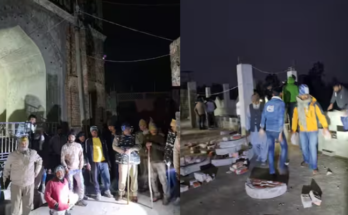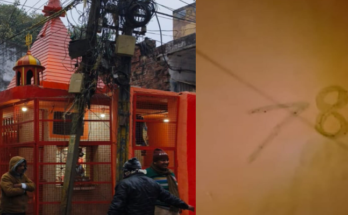JNS: Adding another frontier to the world of learning, DPS Bokaro started the Virtual Reality (VR) Lab for its students on Tuesday. It is the first VR Lab in the district and will provide educators with many new ways to motivate and engage their students and help them design their lessons in a way that resonates with students.
Rajan Prasad, Executive Director (P&A), Bokaro Steel Plant- cum- Pro-Vice Chairman, DPS Bokaro Managing Committee inaugurated the lab.
Citing it as an exemplary initiative of DPS Bokaro Prasad said that VR teaching tools can be highly effective in fostering engagement across complex STEAM giving students the chance to explore life onboard.
“Learning is not simply about being exposed to knowledge; it is about witnessing new concepts and ideas. It is about engaging with this knowledge directly – retaining it, keeping it, and wielding it effectively”, he added.
It is noteworthy that Virtual Reality immerses the learner in the entire experience. For example, instead of just watching a documentary on whales, students can experience what it would be like to be a scuba diver in the water with the whales. VR stimulates as many senses as possible through the use of a headset that shows 3-D graphics of the subject matter. Learning in this way can improve and enhance the learning environment and increase the attention span of the students.
The VR lab is established in partnership with Metabook XR, a leading Edtech company and is equipped with the latest technology, including approximately 100 high-end VR headsets, motion sensors and a variety of educational software. The lab’s curriculum is at par with the CBSE curriculum and will cover a wide range of subjects, Science, Technology, Mathematics and Social Science. Rakesh Pandey, Vice President and Santosh Kumar, Assistant Vice President were present for the inaugural ceremony.
Dr A. S. Gangwar, Principal, DPS Bokaro said, “With the advancement in technology, classrooms are experiencing a positive shift.”
Gone are the days when classrooms were only confined to chalkboards, pencils, and textbooks. The recent evolution we see today has changed the way of learning the student by using VR headsets, tablets and digital boards, he said adding, “Each student has a different pace of learning. Some are visual learners; others work best with hands-on stimulation or verbal commands. VR education will help bridge the gap between these students. Hence, for enhancing the learning experience, we have come up with these innovative methods.”
“The VR Lab is a significant addition to the school’s infrastructure and will provide students with an innovative tool that can take their learning to new heights. It reinstates its commitment to provide students with the best possible learning experience,” said Gangwar.




